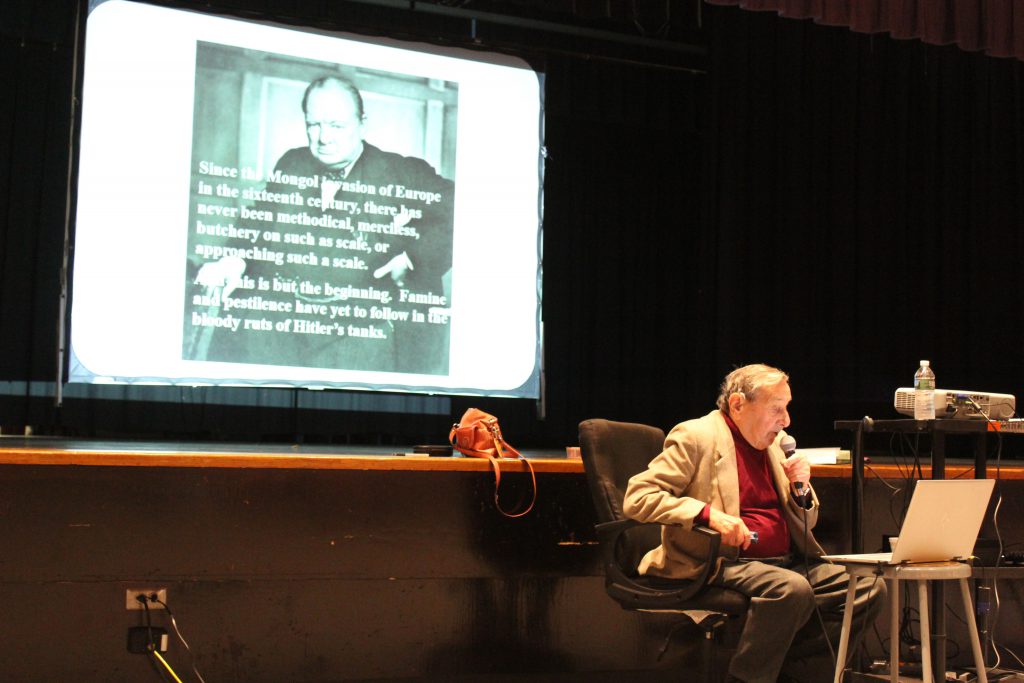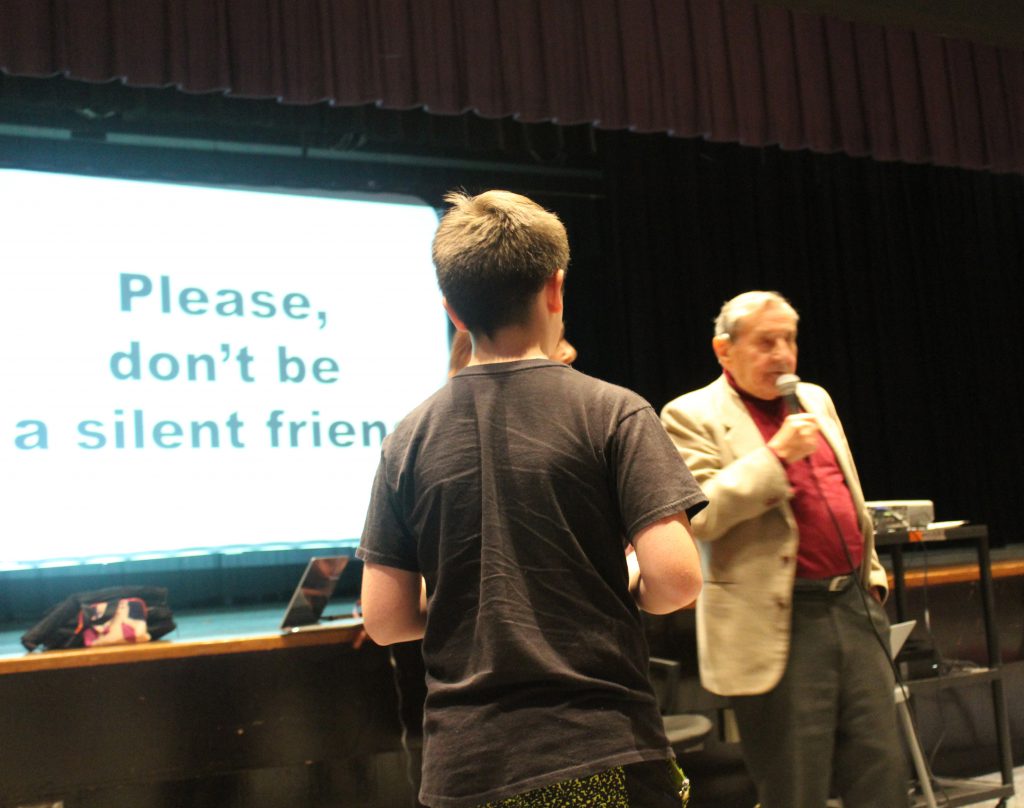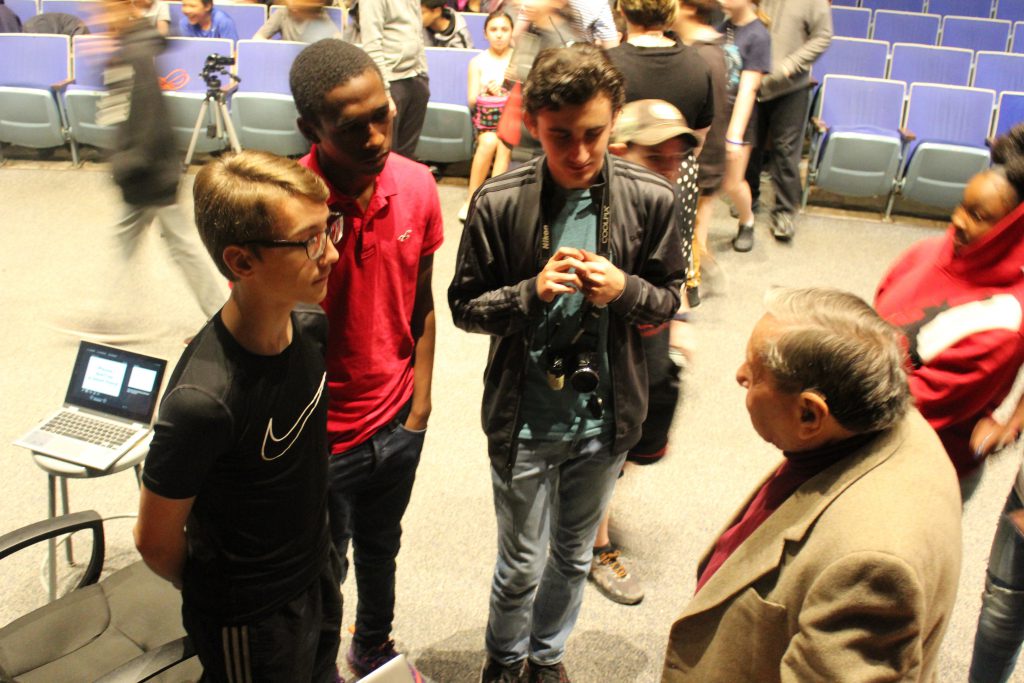‘For evil to succeed, the good people do nothing’
While the world was marking the 75th anniversary of the Invasion at Normandy on June 6, D-Day, Werner Reich was speaking to middle school students from Monticello and Liberty at the Arnold Packer Hughs Auditorium.

Reich, now 91, provided some living history to the students as he was 16 years old when D-Day happened, living in a concentration camp.
Reich took the events of the past and related them to things that are happening now. Like bullying. “Bullying is a hate crime,” said Reich. “Why judge others? Would you want to be judged for your college acceptances based on your looks?”
The purpose of the Holocaust, he said, was to destroy the Jewish people and their culture. It is what happens when we don’t take care of each other. And that was his message throughout his talk – take care of each other.
“We don’t want tolerance. We want acceptance,” Reich said. “Tolerance is putting up with something. We should accept people regardless of their race, religion, sexuality, age, color.”
Reich pointed out that people say the Germans killed the Jews when in reality every country Germany occupied, except Bulgaria, cooperated with them. He said:
When they banned painting and art, the good people did nothing.
When they shot Catholic priests, the good people did nothing.
When they arrested people of color, the good people did nothing.
When they lined up gypsies and killed them, the good people did nothing.
“For evil to succeed, the good people do nothing,” he said.
Today, bystanders protect bullies. The Nazis enjoyed humiliating people just like bullies do, he said.

Reich talked about his life and how his family had to move from their home in Germany to Yugoslavia because of the government. From age 13 to 15, he lived in hiding. His father had died and his mother was afraid something would happen to him and his sister. She separated them. Reich lived for two years with a couple involved in the resistance. One day, the Gestapo knocked on the door and he was beaten and locked in a basement for days. He was moved to Austria and kept with criminals. It was here that he saw his mother for the last time.
He boarded a train to Czechoslovakia, then to Austria and ended up at Auschwitz II in Poland. More than one million people were murdered there.
“Not one bomb was dropped on the gas chamber or railroads there,” Reich said. “Because the good people did nothing.”
There was no way to escape. The buildings were enclosed in electrified wire. German shepherds were trained to kill.
“Someone asked me what was the worst thing that happened to me,” said Reich. “I didn’t know from one day to the next whether I would live or die.”
He was starved, living on bread and broth that was oftentimes inedible. He worked in a stable at one time and ate some of the sugar beets fed to the horses. It helped sustain him.
When he was liberated by the Americans, he was 17 years old and weighed 64 pounds.
He eventually made his way to America. He married a young woman who had been saved from the ravages of the Nazis because of a man who forged documents in order to save children. They had two sons and a happy life.
He shared a quote from Martin Luther King Jr., one he truly believes in.
“In the end, we will not remember the words of our enemies but the silence of our friends.”
“Please don’t be a silent friend,” he said.
Finally, he told the story of two people who looked out in the yard. One saw only mud. The other looked up and saw stars. “My advice? Look at the stars,” he told the students, “and take care of each other.”

